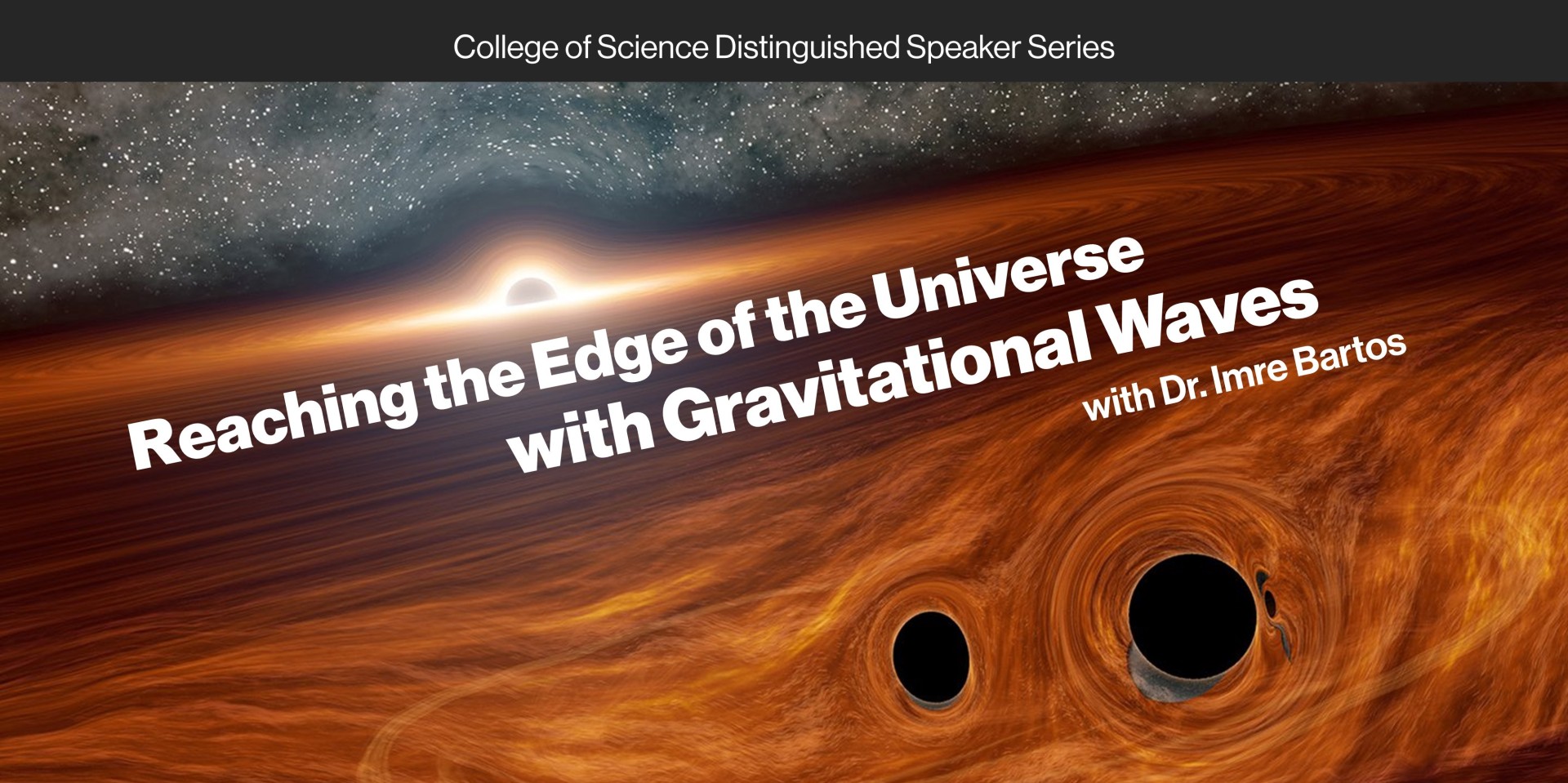College of Science Distinguished Speaker: Reaching the edge of the Universe with gravitational waves

College of Science Distinguished Speaker
Reaching the edge of the Universe with gravitational waves
Dr. Imre Bartos
Associate Professor, Department of Physics
Alfred P. Sloan Foundation Research Fellow
University of Florida
*Location Change: 1250 Gosnell Hall*
A light reception will follow in the Gosnell Atrium
Abstract:
Over the past few years scientists gained a completely new way of learning about the Universe. Gravitational waves are the ripples of the fabric of space itself that are produced when heavy objects accelerate. Importantly, the cosmic events that create gravitational waves are distinct from those that produce other kinds of observable radiation, like light, making them a unique probe of outer space. Black holes in particular are ideal in producing gravitational waves as they can be quite heavy and can accelerate to speeds close to the speed of light when approaching another black hole. With the LIGO gravitational wave observatories we can now sense the collisions of black holes from billions of light years away. In the next decade new detectors will be able to find such collisions all the way out to the edge of the Universe.
Speaker Bio:
Dr. Imre Bartos received his PhD from Columbia University before joining the faculty at the University of Florida. His broad field of interest are gravitational-wave and multi-messenger astrophysics. He primarily studies extreme cosmic events related to the formation and evolution of black holes. Dr. Bartos is a member of the LIGO Scientific Collaboration, the LISA Consortium, and is an associate member of the IceCube Collaboration and the International Union of Pure and Applied Physics.
Intended Audience:
Those with interest in the topic.
Event Snapshot
When and Where
Who
Open to the Public
Interpreter Requested?
No









